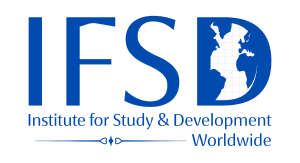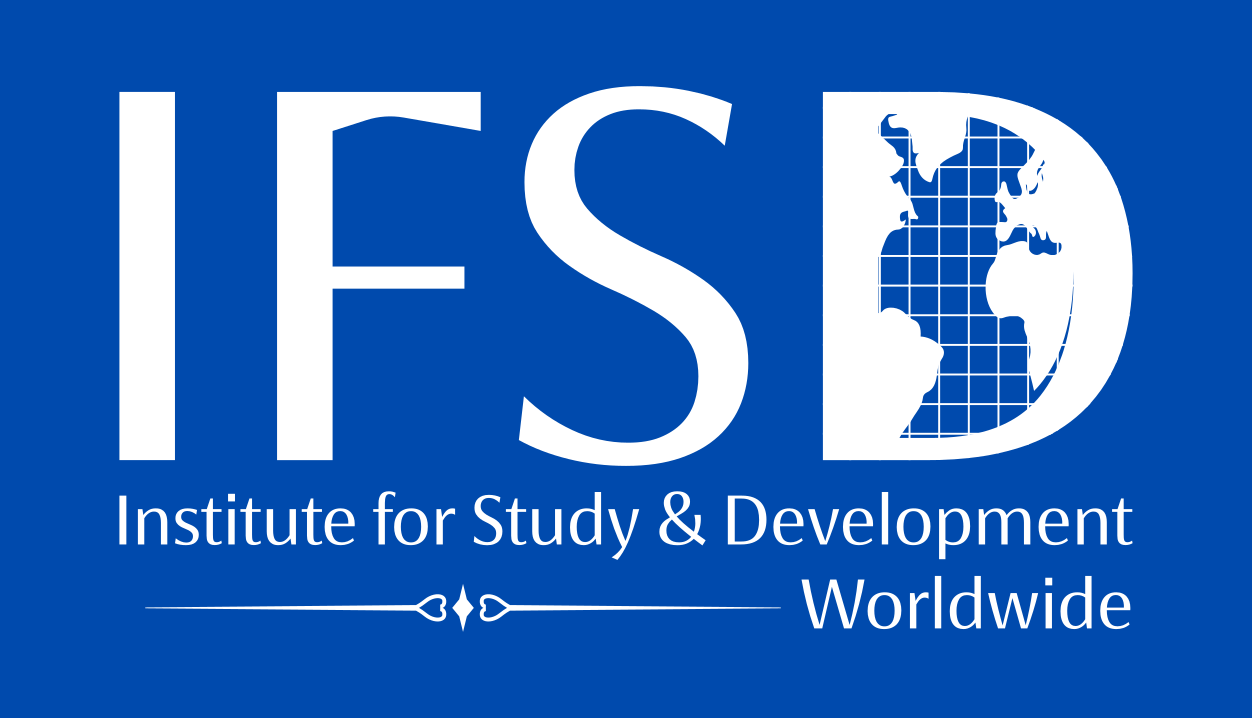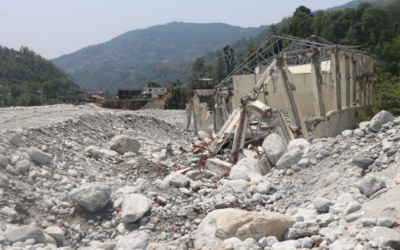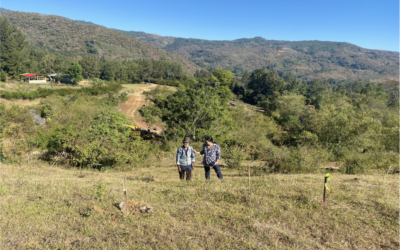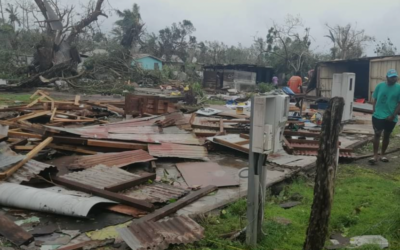Adapting Governance for Inclusive Climate Resilience

Overview
The Govt-Adapt Dialogue I on “Adapting Governance for Inclusive Climate Resilience” demonstrated how adaptation is often seen as a technical quick fix, but it really is a political process, and there is a need to re-politicize adaptation for inclusive and sustainable outcomes. The Dialogue was held virtually on Thursday 14 April, 2022, with 50 people attending from Asia, Australia, Europe and Africa.
The Dialogue was organized by Institute for Study and Development Worldwide (IFSD) in partnership with Swedish University of Agricultural Sciences and University of Oslo. It was co-hosted by Dr Hemant Ojha, Prof Andrea Nightingale and Prof Jeff Camkin. Prof Camkin also moderated the event.
Climate change has now been accepted as a major crisis facing the humanity and the planet. However, a lot of current responses are technical in nature, overlooking the politics and governance dimensionsi. As our research and experience show, there is a serious concern around how adaptation is understood, shaped, and enacted.
As research shows, adaptation projects:
- Emphasize creating sea wall without integrating coastal fisherfolk livelihoods,
- Emphasize flood warning systems without looking at how flood displaced communities can adapt livelihoods,
- Emphasize drought tolerant varieties of rice but exacerbating women’s workload (as the new rice has low straw biomass used as fodder),
- Promote commercial shrimp farming in coastal areas without safeguarding land rights and livelihoods security of marginal farmers.
- Promote unsustainable physical development in fragile landscapes exacerbating flood risks
Adaptation actions are shifting costs and burdens from one part of the system to another, from one point in time to another time, mostly impacting the poor, most vulnerable and the disadvantaged groups. A major cause of this unjust shift is the political asymmetry and power imbalance that underpins adaptation planning and decision making.
Objectives
This dialogue aimed to raise awareness of the need for politically informed adaptation policy and practices which will lead to better adaptation planning, governance, actions, and outcomes in vulnerable communities and countries. The questions this dialogue confronted was not just about how many sand bags, shrimps and shelter are needed as technical adaptation solution, but the underlying rules of the game that define such solutions. This is what adapting governance is about.

Speakers and Key messages
Andrea Nightingale
Jeff Camkin asked the following questions to Andrea Nightingale: “You have done some pioneering work on power and politics in climate change adaptation, with a strong regional focus on developing countries. What motivated you to focus on this work? What is your key argument? Where do you think we need more research and analysis?”
Andrea Nightingale started off by explaining the two main reasons behind technical intervention in climate adaptation. The first being the narrative that human beings need to be able to adapt to the biophysical changes ultimately leading to the focus on more technical processes. Followed by our dominant political economy that focuses on profits further framing adaptation as something one can capitalize on.
Key message:
- After choosing an adaptation strategy and intervening, the adaptation actions whether it is successful or unsuccessful, ends up creating a different context that we need to cope with in the future. The climate is constantly changing but adaptation itself is an element of uncertainty. So, the system is more entangled than we think it is and we need to have a different approach to understanding and designing a good adaptation strategy.
- There is a need to create better participatory and accountable institutions which allow people’s voices to be heard and considered during the decision-making process. “Oftentimes having a good institutional design has been seen too much as a goal in itself when it is really just a step towards good governance”.
- Institutions are animated by power, something very present in adaptation projects as people struggle to achieve power and influence. This has resulted in many adaptation projects failing in developing countries.
- In the case of South Asia, social identities are emerging which will heavily influence the way communities organize themselves. To properly understand adaptation, it is important to understand how social differences are being created and how power operates through the programs that are actually intended to support people.
Ritodhi Chakraborty
Jeff Camkin asked the following question to Ritodhi Chakraborty: In your recent work, you have argued that current climate science, including the work of IPCC, does not do justice to many other forms of knowledge and ways of understanding climate and society. How do you think the regime of climate knowledge should be changed for more democratic and inclusive adaptation practices?
Ritodhi Chakraborty began by unfolding the controversies surrounding knowledge production.
- There is a huge lobbying effort in place to manage how people receive information on climate change. As a response, climate knowledge is becoming more mechanistic to provide legitimacy by focusing more on hypercomplex processes such as calculations. This is the colonial approach that focuses on only measuring things that have relevance and further reducing it to numbers.
- There is a huge involvement of politics in producing something and “there is a lot of historical baggage that science is carrying”. However, current science has chosen to ignore history and is now focused more on being quantitative and algorithmic. Yet, it continues to have a powerful influence on much of the knowledge being shared to us.
- For decades, indigenous communities have voiced how their relationships are a better form of relating to the world compared to the scientific way. We’ve seen efforts being made to encourage knowledge plurality to include their voices but again there is only one single analytical pathway used. So, there is a real lack of analytical justice, “A place to sit at the table is not enough, they have to be able to build the table”.
- The blame has always been on climate change but the main problem is not climate change. It is important to decenter climate change and focus on other factors contributing to its inequality and vulnerability.
Hemant Ojha
Jeff Camkin asked the following question to Hemant Ojha: You have consistently advocated for engaged science of sustainability as a basis for improving governance. From your perspective, how can critical, locally engaged, and collaborative research practices and coalition building can trigger democratic and inclusive shifts in adaptation governance?
Hemant Ojha reaffirmed the bias around the understanding of climate change adaptation stated by the previous speakers. He shared his experience as a PhD student 15 years ago being confused about climate change and how things have changed right now where everything seems to be linked to climate change. In fact, climate change is being used simply as a tag rather than a key factor in the wider system. He highlighted:
- We cannot separate society and the climate but there needs to be a proper balance to it as well. As many scholars try to add indigenous knowledge to their data to create global scale climate change knowledge, it is not enough because the world is multilayered and diverse. “The challenge here is to restore not just science but the system of knowledge”.
- There is a divide between knowledge production groups and practitioners which means there is a clear disconnect between those generating knowledge and those experiencing it. In the context of developing countries, adaptation has received sufficient international support but has also led to maladaptation. Adaptation problems are multifaceted so there is a need to go beyond the western view of knowledge and build it from the ground up. This involves actively interacting with local communities to properly understand their situation to then form effective strategies to address their problem.
- Following are the four domains we should prioritize for analysis and reflections as we seek to confront power and political asymmetry in climate adaptation:
- Domains of knowledge to connect with all scales of decision-makers
- Domains of voices and deliberation – how to imagine a collective decision
- Domains of authority – how to empower local scales
- Domains of accountability – democratizing authority is not enough; it must also be accountable and be recognized.
Emma Carmody
Jeff Camkin asked the following question to Emma Carmody: You have demonstrated through your legal activism that environmental governance cannot be democratic and fair without the work of legal challenge and mobilization of judiciary. From your experience, how can community voices, environmental research and legal activism be combined to make climate adaptation governance more inclusive and fairer for both vulnerable communities and ecosystems at risk?
Emma Carmody shared her experience and learnings as an activist and environmental lawyer for 15 years.
- Many of the environmental laws are never formally implemented, for example: the Water Act passed in 2007 which has still not come close to being implemented due to a lacking legislative requirement. While there are many good laws not being enforced, the lack of resources to make legal challenges has left them unchallenged
- There are clear implementation gaps but courts are not the place to resolve the issues rather a final step out of desperation.
- Climate change is being weaponized to overcome the problem of overextraction and its impacts particularly on local and indigenous communities. Everything is being attributed to climate change but in reality, the root cause of the problem is over exploitation of resources. However, the government is clearly failing to recognize the problem, address it, and entirely blames it on climate change.
- Supporting Andrea’s statement on institutions inherently being animated by power, governments will never intervene to do anything. It is imperative to disrupt the highly politicized system to have a lasting impact but equally important is to properly assess the situation and time to address the problem.
Panel Discussion
Responding to the knowledge shared, the key question asked and the answers were:
On acknowledging different knowledge systems
Karen Delfau – How can we create outputs from any governance process that allows for different Knowledge Systems in a legitimate way? For example, New Zealand does a New Zealand water policy do this as a major framework that acknowledges divergent knowledge systems? What else could this look like?
Rithodhi talked about that despite there being hard fought victories to legitimize indigenous knowledge in the planning process there still a lot to be done to encourage plural knowledge. There are institutions engaging with the colonial state and communities trying to understand both realities and create an equilibrium. However, the power mostly lies in industries with the top eight private landowners now all being timber companies. Aotearoa is globally recognized for climate change adaptation but we can see the recolonization of these islands happening through the process of carbon credits and forestry. This again undermines plural knowledge as we continue to deal with institutional proxies and not the community themselves. So, it is crucial to create a horizontal power structure between the three entities involved: the state, proxy, and indigenous communities.
Jeff further asked Hemant “Do you think in Australia’s land or water use policies they are providing a framework for divergent knowledge systems?”
To which Hemant answered by giving an example of the work done by Slum Dwellers International (SDI), a network of community-based organizations of the urban poor in 32 countries across Asia, Africa, and Latin America. Followed by his involvement in Nepal’s community forest governance to understand the process and outcome of knowledge co-production. More than half of Mumbai’s population live in slums and SDI is working with the communities there by empowering them to collect data about themselves. The data is then validated by experts which is further forwarded to the state planners for better governance outcomes. This process seems to be working really well. Similarly, in Nepal we were able to engage 43 national experts to undertake a proper review of Nepal’s community forest governance systems. The result was a collaborative readable report formed with a negotiation between scientific algorithm and practical wisdom which is now actively used in public discourses.
Emma shared about her work involved with knowledge co-creation with first nations people a decade ago. The first time working with first nations people made her aware of her work as an environmental lawyer within the context of colonial state. There was a peculiar paradox which was first nations people approaching me with the hope that I could use the colonial legal machinery to help them resist the state and developers. So, there was a lot of tension there mainly because you’re the instrument of the system further using to resist it on behalf of marginalized people. While there were some Aboriginal clients that took that approach happily there were many other Aboriginal clients that were uncomfortable. However, we tried to reimagine ways to ensure that the law interacted with the communities. While there are no proper solutions there are examples where I have been able to form strong relationships and work with them to make a difference. With regards to the possibility of co-creation, being a lawyer with traditional training in a colonial legal system and later working on behalf and with Aboriginal people, that in itself is a form of co-creation. It is a way of challenging power.
Andrea mentioned the challenges being faced to bring different pieces of knowledge together on the table. There are a number of efforts to bring knowledge together by incorporating different stakeholders with Canada being on the frontline. However, they suffer from the need to create consensus on creating one outcome. This is a major part of the problem because we all have different entry points. We can solve the problem of climate change by starting off from the same baseline. There is a lot of power dynamics involved but a solution to water governance problem from an indigenous perspective needs to be given the same space, support, and legitimacy as a the scientific one. So, we need to allow different approaches to have a little bit of friction.
Moderator’s final remarks
Jeff further expanded on the four domains highlighted by Hemant setting the scene for the second part of the dialogue which will focus on how we can achieve the re-politicisation of adaptation. These domains include:
- Domains of knowledge to connect with all scales of decisions. This means properly involving global, national, regional, and local decision-making bodies along with individuals such as farmers.
- Domains of voices and deliberation. This relates to the response Andrea made on making agreed decisions despite having our own differences.
- Domains of authority/ This includes focusing on ways to empower actors on the local scale to take effective actions.
- Domains of accountability. While democratizing authority is required it is not enough. We need to ensure that those in authority must be recognized and held accountable for their actions.
Speakers Profile
Andrea Nightingale. Professor Nightingale’s academic interests span political ecology, socionatures, critical development studies, feminist theory, and methodological work on mixing methods across the social and natural sciences. Andrea feels passionately about theorizing new understandings of the society-environment nexus to account for power and politics within dynamic and unpredictable environmental change. She use in-depth, fieldwork-based studies combined with interdisciplinary theorizing to work with ontological and methodological pluralism. Her scholarship has contributed to debates in feminist political ecology on theorising social justice, nature, commoning and environmental governance. Her work political economy o climate change is well recognised globally.
Emma Carmody. Dr Emma Carmody is an environmental lawyer with particular expertise in water law and policy and international environmental law. She has spent the last 15 years advising a broad range of clients including international organisations, government ministries, NGOs, First Peoples, farmers and community groups. Emma is listed in Best Lawyers in Australia in the Planning and Environmental Law and Water Law categories, respectively. In 2018, she was awarded the Dunphy Award for most outstanding effort by an individual at the New South Wales Environment Awards for her work as a water lawyer, which has driven considerable reform in relation to compliance and enforcement.
Hemant Ojha. Associate Professor Hemant Ojha works partly with University of Canberra and IFSD Sydney. His work integrates applied research, policy analysis, community empowerment, and social entrepreneurship with a holistic view of change. He set up two influential think thanks and nurtured a community of action researchers who contributed to community based natural resources management in Nepal. He has advised international development agencies on community-based programs design. He divides his time between the academia (University of Canberra) and a research and development consulting firm Institute for Study and Development Worldwide (IFSD) in Sydney. He is currently developing a Policy and Practice Lab methodology that can assist development professionals and action researchers to effectively use evidence, interactive learning, and community empowerment to influence development policy and practice.
Jeff Camkin. Jeff Camkin has 30 years’ experience in water, fisheries and agriculture governance, resource allocation, stakeholder engagement, research, and education. He is presently Adj. Prof. at UWA’s Institute of Agriculture and Griffith University’s International Water Centre, honorary lecturer at the Technical University of Darmstadt (Germany) and University of Algarve (Portugal), and an international water and sustainability consultant. With qualifications in applied science and natural resources law, roles in government, academia, NGOs, and the private sector, along with experience in Asia, Africa, Europe, America, and the Pacific, Jeff has a well-rounded understanding of natural resources and sustainable development. He founded World Water Policy Journal and he remains Editor-in-Chief.
Ritodhi Chakraborty. Dr Chakraborty is interested in working with grassroots climate change adaptation initiatives, climate/environmental justice, ecosystem services, social-ecological systems research, indigenous knowledge and masculinity/gender subjectivities. Ritodhi has worked in the Himalayan region (India, Bhutan, China) and in Aotearoa NZ over a decade, have native fluency in some of the languages spoken there and am currently involved with multiple projects in the region researching agricultural change on various scales due to various social and ecological transformations including change in climate change caused precipitation variance and youth migration, as well as modeling possible vulnerabilities using ethnographic agent-based models. He has also been an environmental educator for the past 3 years and have extensive experience living and working with agrarian communities, civil society and research institutes in South Asia. He also has an experience managing a Non-profit, as well as working in think tanks in India, USA and China.
References
Nightingale, A.J., Power and politics in climate change adaptation efforts: Struggles over authority and recognition in the context of political instability. Geoforum, 2017. 84: p. 11-20.
Ojha, H., et al., Policy without politics: technocratic control of climate change adaptation policy making in Nepal” has been successfully submitted online and is now under consideration by Climate Policy. Climate Policy 2016. 16(4): p. 415-433.
Eriksen, S., et al., Adaptation interventions and their effect on vulnerability in developing countries: Help, hindrance or irrelevance? World Development, 2021. 141: p. 105383.
Download PDF version of this report.
